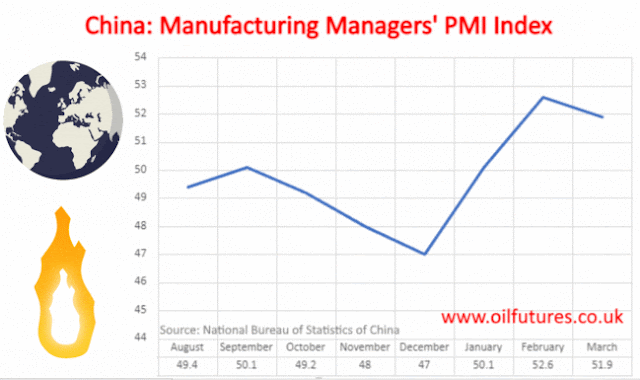The prominent members of the group announced that they would opt in for voluntary cuts in crude oil production from May; the numbers are not insignificant and the effect will be felt in the markets this week, reversing the downward trend that we have been witnessing for the past fifteen weeks.
Saudi Arabia, the de facto leader of the OPEC+, said it would cut 500,000 barrels per day - bpd; Kuwait, Oman, the UAE, Iraq and Kazakhstan are planning to make their own production cuts too, ranging from 40,000 bpd to 211,000 bpd.
In short, the cumulative impact on the supply side of the crude oil markets will be significant and in inverse proportion to the cuts, the price of crude oil in the markets will go up; some analysts fear it could go up by as much as $10.
Much to the embarrassment of the US, Russia joined the bandwagon too by announcing its own production cuts that amounts to almost half a million barrels a day.
At first, the US appeared to be caught off guard by the move. Anthony Blinken, the Secretary of the State, however, quashed that notion by saying that the Biden Administration got wind of the move, spearheaded by the old ally, Saudi Arabia, and made every effort to discourage them from making the move, but to no avail.
The decision by the OPEC+ members is politically damaging for the administration: on on hand, it will be interpreted as the weakening influence of the US, in the Middle East in particular and around the world in general; on the other hand, the collective effort by the West in isolating Russia will be seen going up in smoke by the ordinary people, despite months of relentless diplomatic maneuvers.
The move by the members of the OPEC+ dealt a severe blow to the global economy, just as it was showing feeble signs of recovery. In this context, the OPEC+ will come in for criticism by the countries which are going to be affected directly, especially the countries that spend vast amount of money for importing the commodity.
The announcement was made a day before the OPEC+ ministerial meeting. Up until Sunday, the members of the cartel sent out the signals that the production targets set out in October, 2022 would be kept. Then, on Sunday, all of a sudden, they reversed their position on the production targets, citing it as a 'precautionary measure'.
Analysts wonder what brought about the change of heart by the influential members of the OPEC+, having said the exact opposite a day earlier.
I suspect it is more to do with the anxiety of the members about yet another steep fall in the price of crude oil: the producers have been pinning their hopes on the recovery of the Chinese economy in 2023; in February this year, China's Purchasing Managers' Index, PMI, rose up to 52.6%, having been in the doldrums for months, that in turn led to the renewed optimism among the producers about imminent price recovery; it, however did not materialize.
When China released the corresponding figure for March, it was a disappointment, indeed. It fell back to 51.9%, implying a decline in manufacturing activity. The OPEC+ may have been alarmed at the development and compelled to react to mitigate the impact on their revenues in the short term.
Since China and India have turned to Russia for their oil needs at heavily discounted prices at the expense of their traditional sellers in the Middle East, the members of the OPEC+ may have been prompted to act before it is too late, despite the immense criticism they would potentially face from the consumers.
The US did not hide its displeasure over the move. As the major Middle Eastern oil producers are making new alliances with China and Russia, while the influence of the US is on the wane in the region, the room for maneuver for the world's only Superpower is diminishing by the day.
Some political analysts believe the restoration of the ties between Saudi Arabia and its regional foe, Iran, with the mediation of China could be the straw that broke camel's back, as far as the what remains of the US-Saudi relations are concerned.
To make matters worse, the Middle East slowly gravitates towards the combined axis of Russia and China, while exploring ways to minimize the relevance of dollar as the preferred global currency for transactions.
Some members of the US congress may come down hard on the move by the OPEC+, as the inflation gets wings in response to the production cuts; there will be murmurs for expediting the NOPEC bill that give the US Federal government the power to act if the latter suspect 'organized power play' to keep oil prices artificially high.
If the inflation goes up again in the US due to oil production cuts, the US will be compelled to release more oil from its SPR - Strategic Petroleum Reserve; the US has been doing just that for months and the fact that it remains so low has left the administration in a lurch, because it was for an emergency and not for a market stabilizer.
Since the prices of oil are still too high, the US cannot replenish the stocks as it wishes at the moment. In this context, releasing more oil form SPR is neither feasible nor strategic, apart from being just a knee-jerk reaction to the circumstance that are increasingly becoming beyond the domain of the US influence.







